Anders Åslund: "Russia will not be a normal country until Putin is out of power."
Michael Novakhov's favorite articles on Inoreader
All decent, democratic people must hope for the end of Putin’s kleptocratic authoritarianism.
It is unacceptable to hope that Putin’s brutal dictatorship will persist in Russia.

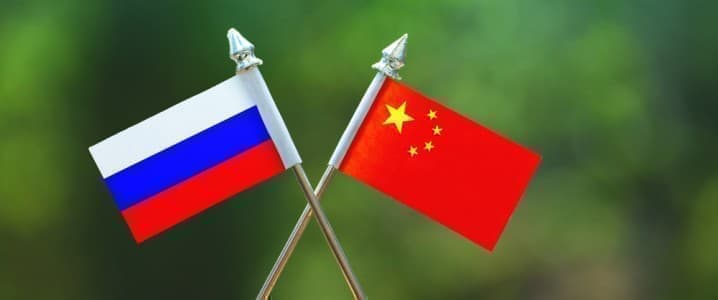
Xi Jinping concluded a three-day visit to Russia on March 21. He and Russian President Vladimir Putin inked several agreements to deepen strategic cooperation between the two countries.
Xi said the agreement brings ties into a "new era" of cooperation, while Putin described the talks as "successful and constructive."
The monumental meeting comes as Moscow's international isolation deepens due to its continued aggression in Ukraine.
Xi reiterated his call for a diplomatic resolution to the conflict, saying it is guided by the principles of the United Nations and promotes a peaceful settlement.
"We signed a statement on deepening the strategic partnership and bilateral ties which are entering a new era," Xi noted.
During the state visit, Xi commented on the "constructive talks" he shared with Putin about the expansion of trade and economic cooperation.
Additional natural gas deliveries to China were agreed upon, with plans for the countries to enhance transport links by way of building roads and bridges.
While many have described their partnership as having reached an all-time high, the joint statement released indicated that the partnership was not directed against any other country, nor did it constitute a "military-political alliance".
This cementing of the alliance has been a bone of contention for NATO and Western powers, but their appeal to China to refrain from providing arms to Russia may have had a positive impact.
NATO Secretary-General, Jens Stoltenberg, said there is no evidence that China has agreed to provide weapons to Russia.
By Michael Kern for Oilprice.com
More Top Reads From Oilprice.com:
U.S. Secretary of State Antony Blinken said on March 22, as cited by CNN, that any European state member of the International Criminal Court (ICC) should arrest Russian dictator Vladimir Putin if he visits.
#News #Times #TNT TNT #NT NT
#NewsReviews #SharedLinks #Analysis
#FBI FBI #DOJ DOJ
#Intelligence #CounterIntelligence
#Russia #Putin #Ukraine #RussiaUkraineWar
thenewsandtimes.com
trump-news.org
russianewsreview.org
newsandtimes.net
Official: Putin didn’t achieve desired results from meeting with Xi Jinping ino.to/whC0lVI

Days after Vladimir Putin was hit with an international warrant for alleged war crimes in Ukraine, Xi Jinping’s first state visit to Moscow in four years is a demonstration of the Chinese leader’s commitment to Russia’s president — but is also set to show the red lines in what the pair last year dubbed a “no limits partnership”.
Putin, who defiantly travelled to occupied Ukrainian territory at the weekend after the International Criminal Court warrant, will hope that Xi’s three-day visit, which began on Monday, will lend legitimacy to his invasion of Ukraine and that China might pledge material support to help his military fight it.
But there are signs that Xi will remain guarded over the potential costs of friendship with Russia’s leader, particularly in Europe as Beijing tries to boost trade after its zero-Covid policy savaged its economy last year. And despite warnings from the US that China was considering sending arms to Russia, there is as yet little evidence of substantial flows of weapons between the two countries.
After his trip to Moscow Xi may call Putin’s nemesis, Ukrainian president Volodymyr Zelenskyy, according to one person familiar with the matter. It would be Xi’s first direct contact with Zelenskyy since the full-scale invasion and a sign of the constraints China sees on its alliance with Russia, at a time when Beijing wants to assert credentials as a potential peacemaker.
“I think he will do the call,” said Yu Jie, a senior research fellow on China in the Asia-Pacific Programme at Chatham House. “China simply cannot afford to become a rival of both the US and Europe.”
Dmitry Peskov, Putin’s spokesman, said Putin and Xi would “inevitably” discuss China’s peace plan both during informal one-on-one talks on Monday and formal negotiations on Tuesday.
Putin plans to give Xi “exhaustive explanations so that chairman Xi can get a view of the current moment from the Russian side from the horse’s mouth,” Peskov told reporters in an apparent reference to the leaders’ last meeting in September, when China admitted they had differences about the Ukraine conflict. Back then, Putin told Xi that “we understand your questions and concerns about this” and promised to “explain our position.”
Beijing’s close ties with Moscow despite the war, which analysts have dubbed “pro-Russia neutrality”, are damaging its standing in Europe. While China’s position paper last month on a potential settlement in Ukraine was met with scepticism in the west, it is a way for Beijing to reposition itself and see how the conflict evolves, analysts say.
The challenge for Xi is to strike a balance between those concerns and the benefits of closer ties to Moscow at a time of mounting tension with the US and its allies.
“The Ukraine war has intensified the great power rivalry and made the geopolitical faultlines between the US and China even more pronounced, and in response China and Russia are now really consolidating their alignment,” said Alexander Korolev, an expert on China-Russia relations at the University of New South Wales in Sydney.
“China will need Russia for its impending confrontation with the US, which is becoming very real,” he added, pointing to closer military relations between the two countries and Beijing’s need to prepare alternative energy supply routes in case seaborne oil imports from the Middle East were blocked in any clash with the US over Taiwan.
As Europe and the US have imposed harsh sanctions on Russia, China’s trade with its neighbour has soared over the past year, jumping 34.3 per cent to a record Rmb1.28tn ($186bn), according to Chinese state-controlled media. This year, natural gas imports from Russia are expected to rise by a third.
Trade with Beijing has given Russia an economic lifeline, making up for some lost oil sales to the US and Europe and supplying replacements for crucial western-made components such as microchips, 5G equipment and industrial machinery.
“[The Chinese] understand that this is a very beneficial moment for them to get Russia deeper in their pocket. They have a tremendous amount of leverage,” said Alexander Gabuev, a senior fellow at the Carnegie Endowment for International Peace.
Putin’s framing of the war as part of a broader conflict with the west has drawn the two countries closer. Russia is a useful partner in China’s efforts to push back against the US “hegemon”, analysts say. Russia’s powerful security council secretary Nikolai Patrushev gave full-throated backing for Beijing’s stance on Taiwan when he meet China’s top diplomat Wang Yi last month.
Recommended
Ahead of the trip on Monday, the Chinese and Russian leaders released long statements extolling their relationship. Xi said China had all along been “impartial” on what he called the “Ukraine crisis”, while lashing at “damaging acts of hegemony, domination and bullying”, a thinly veiled reference to the west. Putin in an article in China’s People’s Daily praised Xi as “his good old friend” and said he appreciated Beijing’s “well-balanced stance on the events in Ukraine”.
“For Russia, the limitations that existed before are gone,” Gabuev said. “Putin is obsessed with this war, and the partnership brings him a lifeline to the economy, critical components for his military machine, and China a tool to push back against the US — because the enemy of my enemy is my friend.”
Beijing and Moscow’s deepening ties led US secretary of state Antony Blinken to warn last month that any material Chinese support for Russia’s military would have “serious consequences” for relations with the US.
China has responded that the west is fuelling the conflict with its arms sales to Ukraine. “China was not the cause of or catalyst of the Ukraine crisis, nor did it provide weapons to any party in the conflict,” Chinese foreign minister Qin Gang said this month.
Yet while relations with Russia remain important, China has a limited opportunity if it wants to stabilise ties with bigger trading partners in the west.
Xi will have a chance to meet US president Joe Biden at two summits this year but with a US election next year, the chances of further rapprochement with Washington will be limited. And while several European leaders including French president Emmanuel Macron plan to visit China this year, the success of these meetings will be coloured by how far Xi backs Russia in Ukraine.
For this reason, Beijing’s efforts to paint itself as a mediator are important, analysts say. China this month enjoyed a rare success in conflict resolution when it brokered a deal to restore diplomatic relations between Iran and Saudi Arabia.
Solving the Ukraine conflict would be far harder, analysts say. China’s position paper last month failed to condemn the Russian invasion and contained thinly veiled criticisms of the west and Nato.
China “lacks the status of an impartial mediator in the Ukraine conflict because of its substantial support of Russia”, said Leif-Eric Easley, a professor of international studies at Ewha Womans University in Seoul. “For China to be helpful, it should not suggest what Kyiv can compromise but rather find a face-saving way for Moscow to pull back forces.”
Contact between Xi and Zelenskyy would represent a concession from China to western scepticism. But any contact was likely to be virtual rather than in-person and the results inconclusive, analysts said, as Xi sought to balance China’s desire to play peacemaker against giving any ground to the US.
Beijing viewed the Ukraine conflict as a proxy struggle pitching Russia against Nato and the US and “Zelenskyy lacks decision-making power”, said one expert at a Chinese think-tank in Beijing.
“All he [Zelenskyy] can do is to forward the message to Joe Biden. President Xi has no need to endorse Zelenskyy by meeting him in person. China respects Ukraine’s interests. But that’s different from prioritising US interests.”
Additional reporting by Sun Yu in Beijing, Kathrin Hille in Taipei and Edward White in Seoul
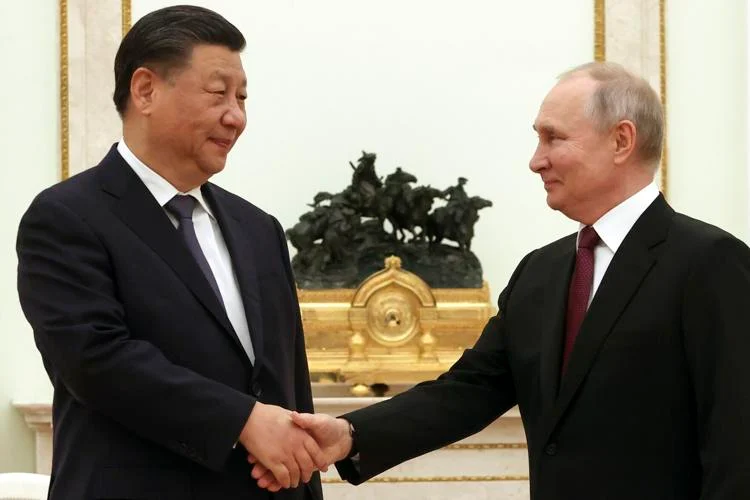
Chinese President Xi Jinping’s state visit to Moscow, which starts today and is expected to go for three days, is certain to be rich in pomp and ceremony. Yet, its content remains rather uncertain. Russian President Vladimir Putin, in most cordial terms, invited his Chinese counterpart during their video conversation on December 30. But Xi, according to the transcript, did not acknowledge the invitation at the time (Kremlin.ru, December 30). The date of the visit was announced only last week, and the rush was likely caused by Beijing’s desire to give a new impetus to its “peace plan” for the Russo-Ukrainian war, announced by the Chinese Foreign Ministry on February 24 without much effect (Nezavisimaya gazeta, March 14). Putin may not welcome the Chinese emphasis on the principle of territorial integrity, but he is certainly not in a position to criticize the plan and finds the timing of the visit quite propitious, as it nearly coincides with the ninth anniversary of the annexation of Crimea, to which he recently paid a rather low-profile visit (Meduza, March 18). A number of serious complications, nevertheless, could cast a shadow over the Kremlin’s banquet table.
The first is the decision of the International Criminal Court (ICC) to issue an arrest warrant for Putin due to war crimes related to the illegal deportation of children from Ukraine to Russia (RBC, March 17). The Hague has collected plentiful evidence of war crimes committed in the course of Russian aggression, but it was the meeting between Putin and Maria Lvova-Belova, the Russian ombudsman for children who was also included on the warrant, last month that pushed the urgency of addressing the thousands of Ukrainian children who are being subjected to “re-education” in Russian institutions (Rossiiskaya gazeta, February 16). Neither Russia, nor China recognizes the ICC’s authority, but “patriotic” politicians in Moscow still rushed to condemn its decision as an act of “aggression” (RIA Novosti, March 17). Most states in Latin America and many in Africa support the ICC’s work. As such, the leaders of Brazil and South Africa may find it awkward to continue dialogue with Putin, who has now been relegated to the category of the most notorious dictators and warlords (Novayagazeta.eu, March 17).
Another complication is the unfolding economic crisis in Russia, which is officially being downplayed but continues to deepen under the impact of constantly fine-tuned Western sanctions (Re:Russia, February 8).
Statistical data has become scarce and carefully doctored, but the huge deficit in the Russian federal budget for January and February 2023 is impossible to hide, and the heavy expenditures on the war are undercut by the 46-percent contraction in petro revenues, as compared with the first two months of 2022 (Forbes.ru, March 6). Putin persists with denials of any economic problems and addressed the recent meeting of Russian business elite with deliberate arrogance, knowing perfectly well that many ill-gotten fortunes suffered heavy losses because of his war (Kommersant, March 17). Xi, however, is much more attentive to economic matters and concerned about global markets. Therefore, he seeks to utilize every means of stimulating growth, including pushing down prices on oil and gas imported from Russia (Nezavisimaya gazeta, March 12).
Yet another complication is the spike in tensions between Russia and the United States caused by the intercept of a US MQ-9 Reaper surveillance drone on March 14 by two Russian Su-27 fighters over the Black Sea, some 70 miles southwest of Crimea (Izvestiya, March 18). Russia has denied any wrongdoing, with Moscow’s propagandists underscoring this fact. However, US Defense Secretary Lloyd Austin’s call with Russian Defense Minister Sergei Shoigu helped in restoring calm for resuming reconnaissance drone flights (RIA Novosti, March 15; Rosbalt.ru, March 18). Xi may be eager to exploit anti-American rhetoric, but he is careful not to provoke direct clashes—and certainly would not want to be in Moscow amid a crisis resembling the recent “spy balloon” quarrel (Russiancouncil.ru, March 6). He may be interested in bargaining for some Russian military technologies but knows that, in developing unmanned aerial vehicles, Russia lags behind Turkey, much to the chagrin of “patriotic” bloggers (TopWar.ru, March 12).
Turkey has turned out to be the source of yet another complication as President Recep Tayyip Erdogan gave the long-delayed approval for Finland to join the North Atlantic Treaty Organization (NATO) (Rossiiskaya gazeta, March 17). Xi and Putin are on the same page in condemning NATO enlargement, but if China can find some satisfaction in the delay of Sweden’s application, for Russia, Finland’s accession with its long shared land border is rather significant (Kommersant, March 17). NATO is gaining new strength not only by accepting new members but also by consolidating its unity in support of Ukraine, and the tenth meeting in the Ramstein format marked a new increase in the supply of weapons and ammunition (Nv.ua, March 15). Poland and Slovakia committed to delivering several squadrons of Soviet-made MiG-29 fighters, which could make some difference in denying the Russian Air Force’s capacity to perform tasks in support of ground forces (Vazhnye istorii, March 17). In the Battle for Bakhmut, which has gained importance on the battlefield as the high watermark of Russia’s offensive push, Ukrainian forces rely mostly on legacy weapon systems, while the newly trained brigades are preparing a breakthrough (The Moscow Times, March 16).
A new setback for Russia’s aggression is looming, and Xi likely wanted to meet Putin before this ultimate complication. Nevertheless, the Chinese president is not going to offer a supply of lethal arms comparable with the West’s rearmament of the Ukrainian army. Posturing as a peacemaker appears to be an easy political game, but it delivers Xi into a no-win situation. He does not want Putin to be defeated but is wary of attempting to rescue the designated loser. He does not want the US-led Western coalition to prevail but remains careful not to confront it directly and not to invite punishing sanctions. And he does not want to disrupt the world order but cannot impress upon Putin the imperative to curtail the Russian president’s troublemaking.
Beijing typically excels at buying time and waiting problems out. Thus, the fast-moving war leaves it responding belatedly and procrastinating in vain. Russia is sinking into the disaster of its own making, and Xi may wonder about when a Russian leader will pay a reciprocal visit to Beijing.
(Bloomberg) -- Xi Jinping used two days of talks in Moscow to firmly align with Russia against the US. But the Chinese leader held back from offering Vladimir Putin something he’s been looking for: A commitment to buy a lot more gas.
Most Read from Bloomberg
The visit by Xi, his first to Russia since Putin invaded Ukraine just over a year ago, marked a political win for both leaders. Xi saw an opportunity to push back at the US and buttress his image as a global statesman after helping to broker a Saudi-Iran deal, while Putin can show he has the support of one of the world’s most powerful leaders even as the US and its allies try to isolate him.
Yet the lack of progress on any major energy deals — or specifics on other areas of economic cooperation — showed some hesitation from China on appearing too close to Russia. Xi wants to avoid facing more stringent economic sanctions that could damage China’s economy, while also keeping Russia on side as a partner that could push back against the US and its allies — and provide cover for countries that don’t want to pick sides.
Emphasizing that China-Russia ties “are not the kind of military-political alliance during the Cold War,” one of the joint statements issued after the talks drew a more explicit boundary than a lengthy joint statement last year that hailed a “no limits” friendship between the countries when Putin visited Beijing just weeks before the invasion.
“Xi’s plan is to strike a balance: China wants Russia to survive, but doesn’t want to be viewed as completely supporting Russia,” said Dongshu Liu, an assistant professor specializing in Chinese politics at the City University of Hong Kong. “The problem is when the war develops, if Russia becomes further disadvantaged and needs economic and military support from China in order to survive, what will China do? China will need to make a bigger choice then.”
The joint statements issued after the talks contained many of the principles China has long espoused in pushing back against the US. The two leaders vowed to prevent “color revolutions,” called for an investigation into the Nord Stream pipeline explosion, expressed concerns about US and UK plans to cooperate with Australia on nuclear-powered submarines and called on NATO to respect “diversity of civilizations.”
The increasing asymmetry in the economic relationship was evident in the statements on energy. Putin promised to deliver at least 98 billion cubic meters of gas a year to China by 2030. While that’s more than six times higher than what it sold to China last year via pipeline, it’s still well below what Russia delivered to Europe at its peak.
But Xi didn’t give Putin an explicit agreement or even a nod to minimal progress on the bellwether Power of Siberia 2 gas pipeline, a crucial link as Moscow attempts to sell more gas to the east while its export infrastructure largely faces west. Putin said after the talks that the new pipeline, which would run to China through Mongolia, was discussed and “almost all” parameters of a deal agreed. But the joint statements were far less explicit.
While that pipeline could supply China with a cheaper alternative to liquefied natural gas, Xi’s government remains focused on securing diversity of supply — essentially not repeating the European error of excessive reliance on Russia. And there’s a lot of countries seeking to sell gas at the moment, including the US, Qatar, Australia and Turkmenistan, according to Batt Odgerel, a senior research analyst at the Energy Policy Research Foundation, Inc.
“It’s a buyer’s market for China,” he said. “Unless Russia gives an extremely pleasant offer, China can wait as long as it wants. Additional gas from Russia is not required, especially after the lockdown-induced economic downturn.”
The extent to which China will continue this balancing act with Russia will be made clear in the coming weeks. Xi is expected to soon hold his first conversation since the invasion with Ukrainian President Volodymyr Zelenskiy in order to further his vague proposal for a cease-fire, which has already been dismissed by the US and its allies.
“Many of the provisions of the peace plan proposed by China are in line with Russian approaches and could be used as the basis for a resolution when Kyiv and the West are ready for it,” Putin said Tuesday in his most detailed comments yet on the blueprint, speaking in the Kremlin alongside Xi.
John Kirby, a spokesman for the US National Security Council, on Tuesday tore into Xi for flying “all the way to Moscow” without first speaking with Zelenskiy.
Cease-fire Proposal
“Now look, if he’s willing to talk to President Zelenskiy and willing to get the other side and, if any future potential negotiation can incorporate Ukrainian views and perspectives,” Kirby added, “then that’s something that that could be seen as impartial.”
China Foreign Ministry spokesman Wang Wenbin rejected that assertion on Wednesday, asking whether it was “impartial to keep pouring weapons into the battlefield.”
China’s cease-fire paper has little detail and largely consists of broader foreign policy positions long espoused by Beijing. While its embrace of the principle of territorial integrity won praise in Kyiv, which seeks to drive Russian forces back across the border, a cease-fire call that would freeze forces in current positions is a non-starter.
The Xi-Putin meeting is also being closely watched for any signs that China will provide Russia with overt military support. The two discussed military cooperation, Kremlin aide Yuri Ushakov said, without providing details, according to Tass.
NATO Secretary General Jens Stoltenberg said Tuesday that the alliance had seen “some signs” Russia had requested lethal aid from China for the war in Ukraine, but “we haven’t seen any proof that China is delivering lethal weapons to Russia.”
“This meeting wasn’t about a specific gas deal or or not even about as much about Ukraine war,” said Alexander Korolev, senior lecturer at the University of New South Wales in Sydney who wrote China-Russia Strategic Alignment in International Politics. “It’s about consolidating China-Russia alignment in the context of deteriorating US-China relations.”
--With assistance from Lucille Liu and Philip Glamann.
(Updates with Foreign Ministry spokesman’s comments)
Most Read from Bloomberg Businessweek
©2023 Bloomberg L.P.

Russian President Vladimir Putin didn’t get even half of what he wanted from his meeting with Chinese leader Xi Jinping, Ihor Zhovkva, a deputy head of the President’s Office, said.
“I think that Putin had much higher expectations for the results of this visit for himself (and) for Russia, and even half, maybe even two-thirds of these (expectations) did not materialize for Russia,” Zhovkva said. “Indeed, no military alliance or partnership, no new contracts for the supply of certain types of weapons, no clear position in support of Russia was taken by the Chinese leader.”
Earlier, the Institute for the Study of War suggested that Russian President Vladimir Putin couldn’t secure a no-limits bilateral partnership with China.
“Putin has likely failed to secure the exact sort of partnership that he needs and desires, and Xi will likely leave Moscow having secured assurances that are more one-sided than Putin intended them to be,” the ISW said.
Download audio: https://play.podtrac.com/npr-500005/edge1.pod.npr.org/anon.npr-mp3/npr/newscasts/2023/03/23/20230323_newscasts_long_010834.mp3?awCollectionId=500005&awEpisodeId=1165523006&orgId=1&d=300&p=500005&story=1165523006&t=podcast&e=1165523006&size=4500000&ft=pod&f=500005
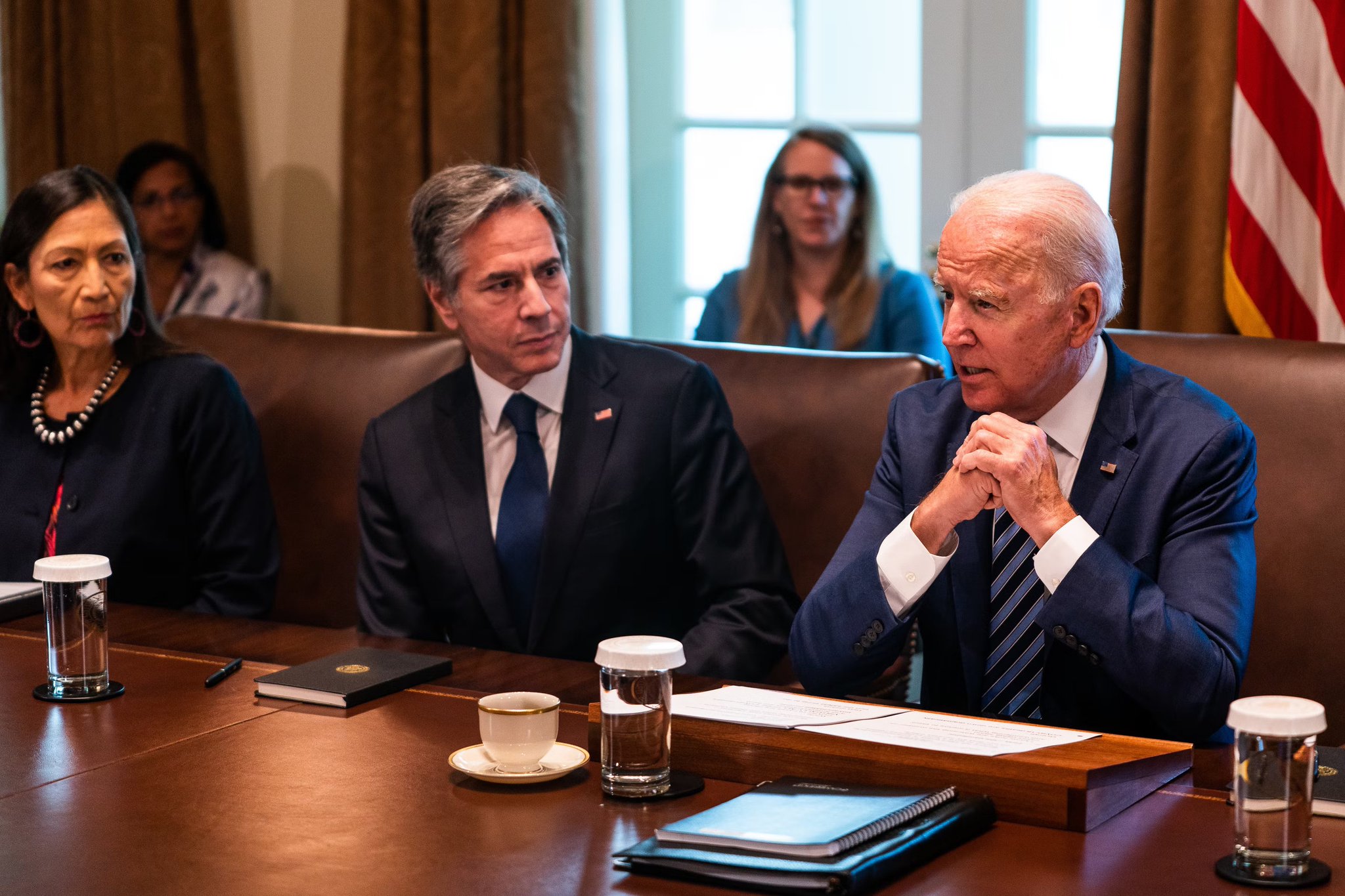
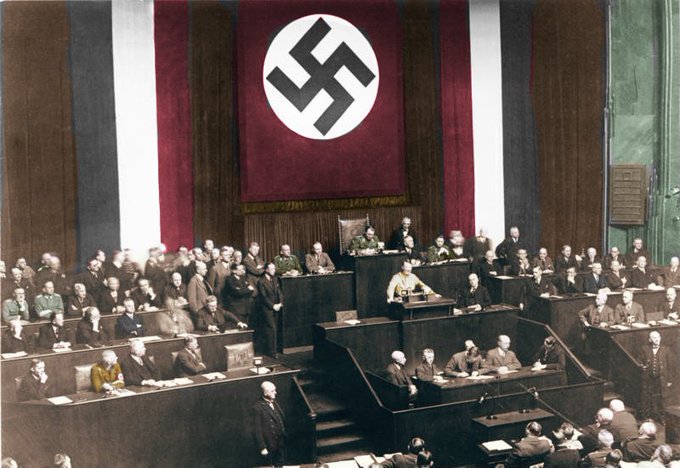
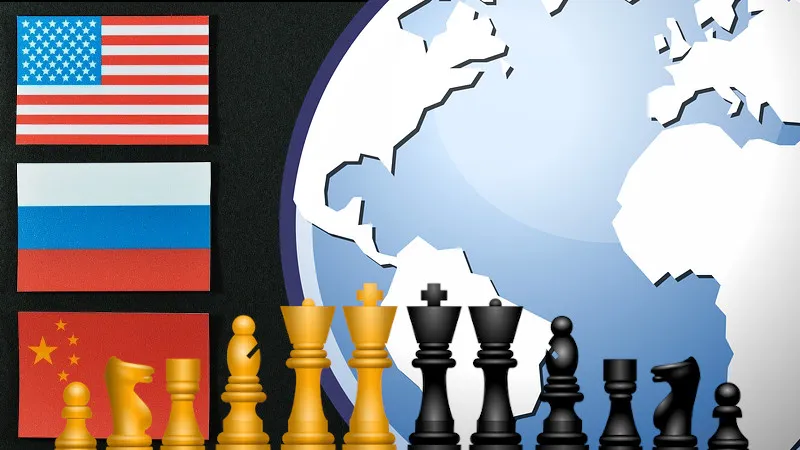
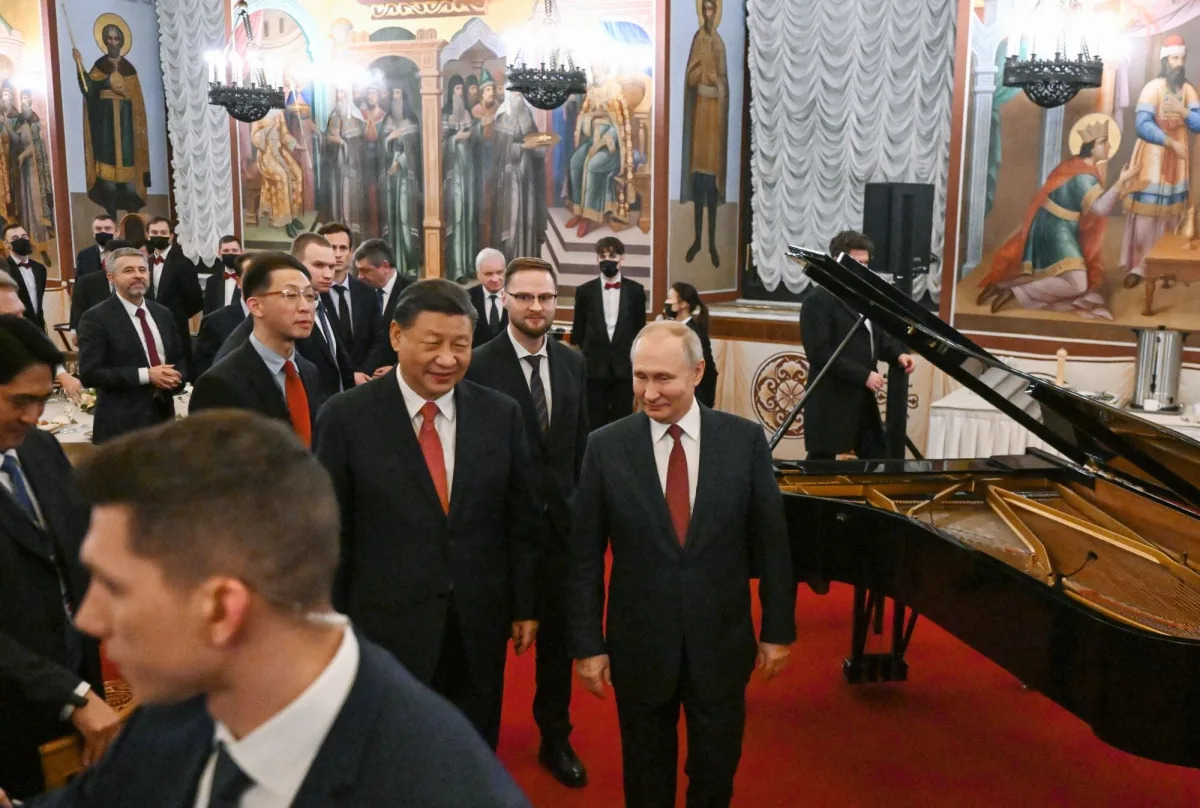


Comments
Post a Comment